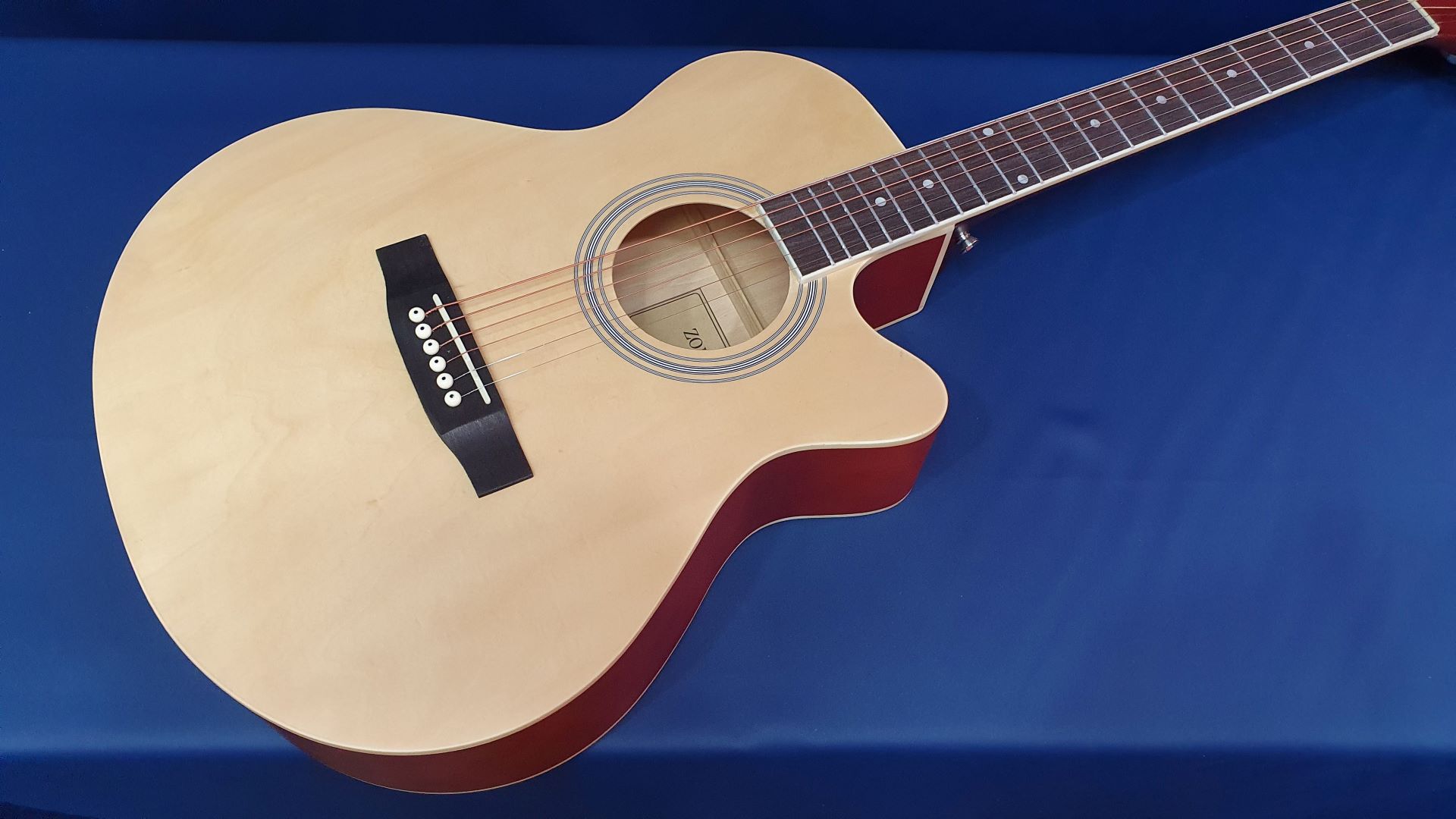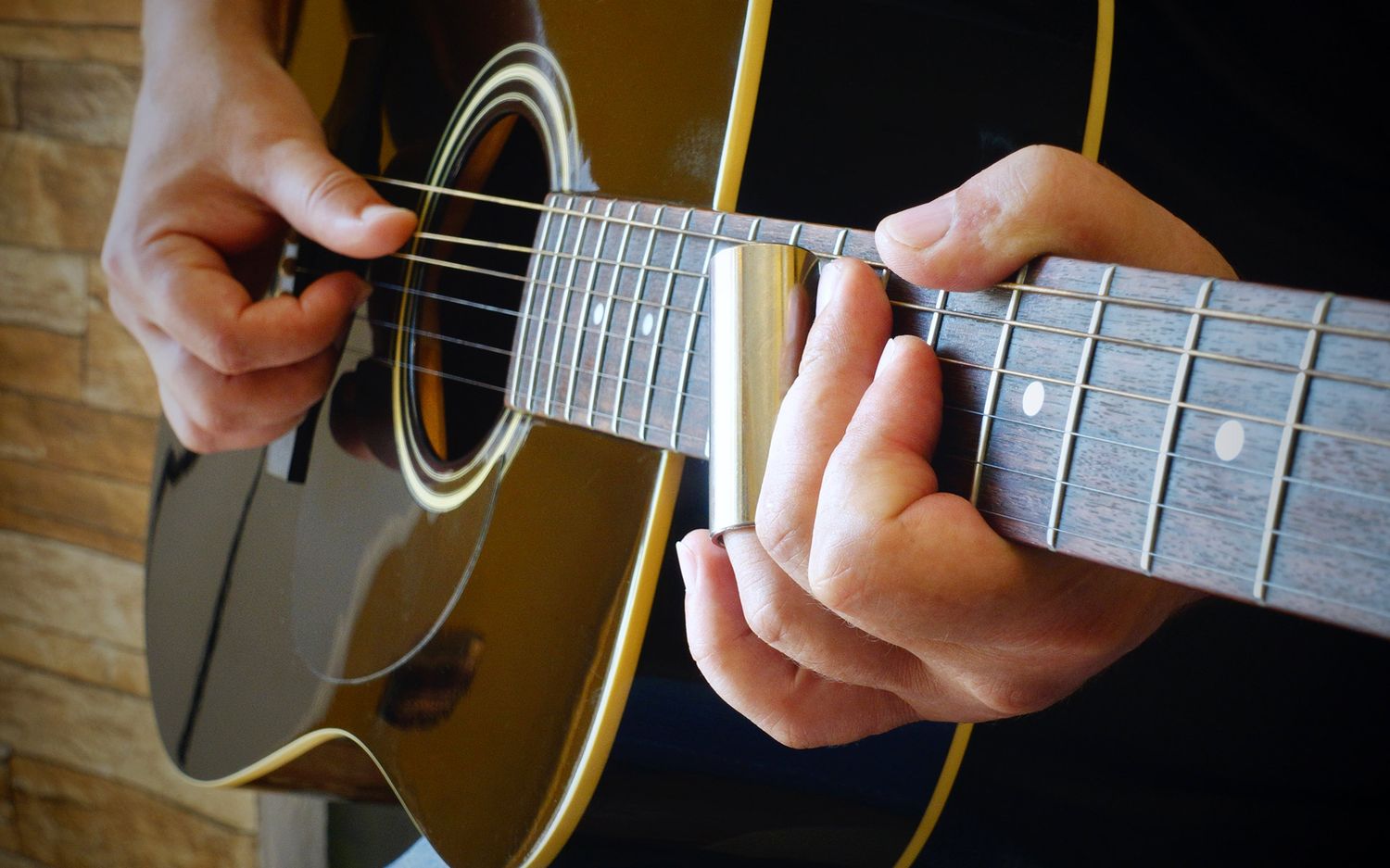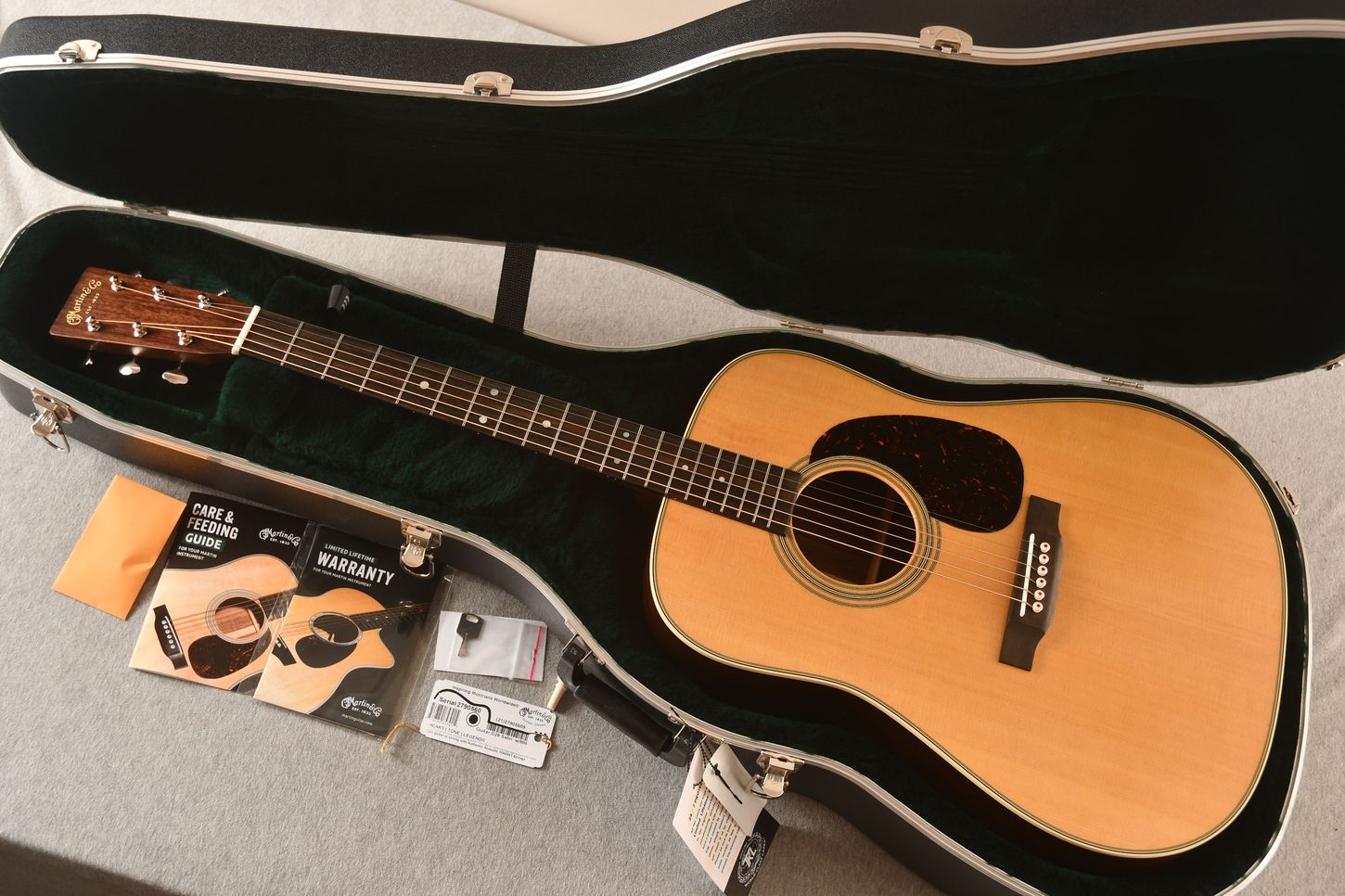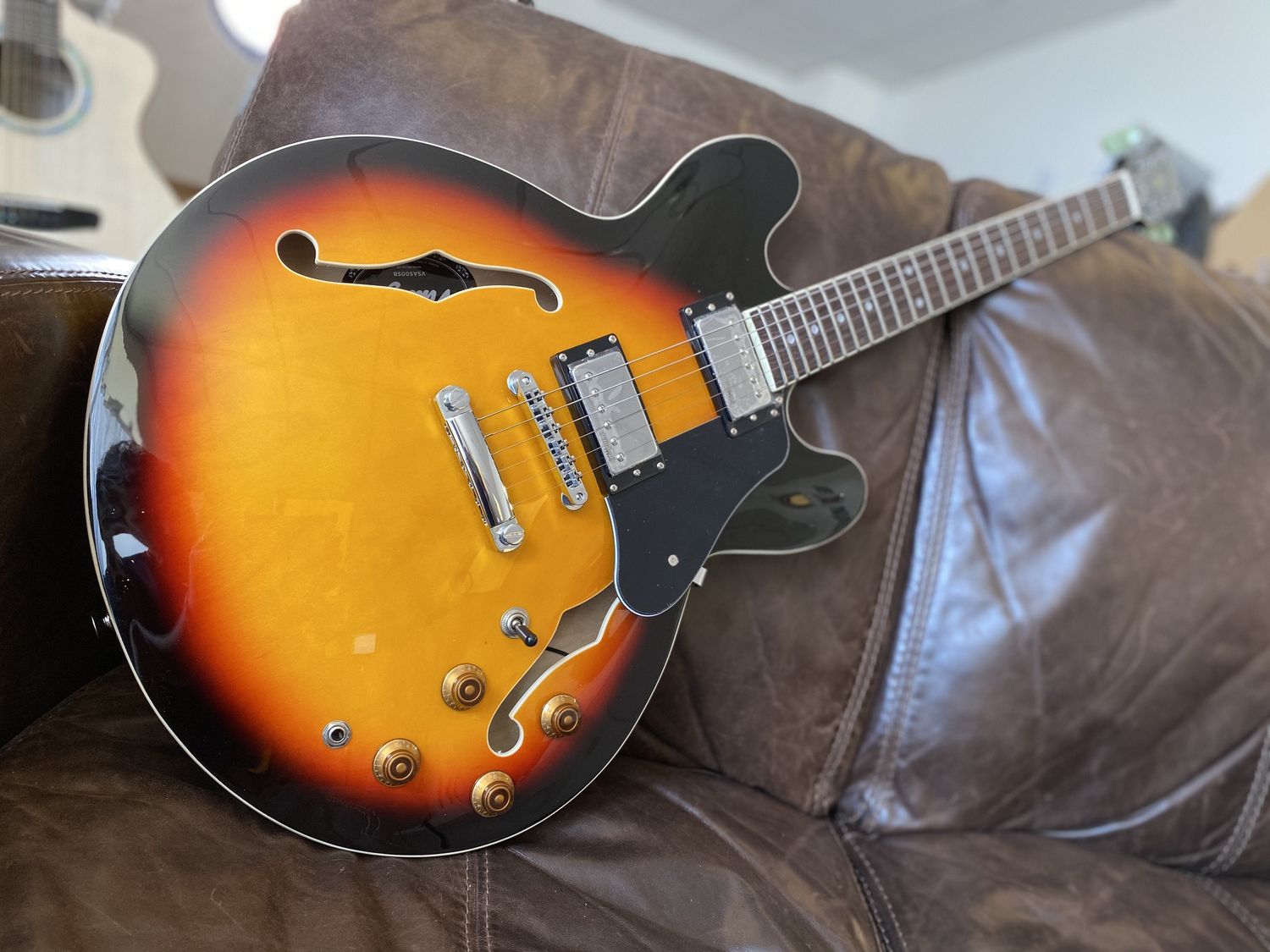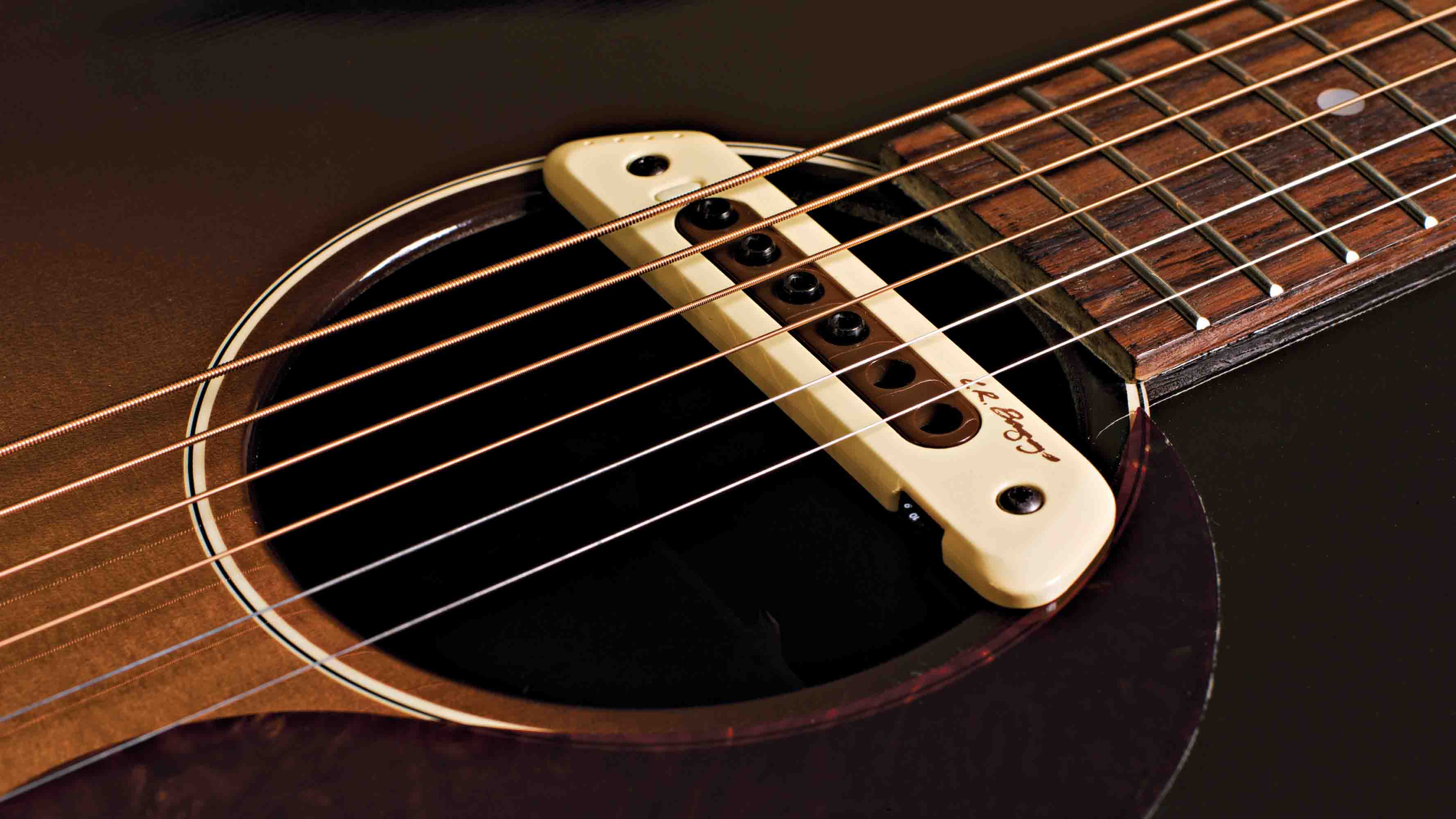Home>Production & Technology>Acoustic>What Is An Acoustic Song


Acoustic
What Is An Acoustic Song
Published: March 11, 2024
Discover the beauty of acoustic music and learn what makes an acoustic song unique. Explore the essence of acoustic music and its impact on the music industry.
(Many of the links in this article redirect to a specific reviewed product. Your purchase of these products through affiliate links helps to generate commission for AudioLover.com, at no extra cost. Learn more)
Table of Contents
Introduction
Acoustic music has a timeless allure that resonates with music enthusiasts across the globe. It's the raw, unadulterated sound of strings vibrating and voices harmonizing, evoking emotions and painting vivid imagery through its melodic storytelling. Whether it's the gentle strumming of a guitar or the soul-stirring vocals of a singer, acoustic music has an intimate and authentic quality that captivates listeners.
Acoustic songs are a genre of music that strips away the layers of production and amplification, allowing the purity of the music to shine through. They often feature unplugged instruments, such as acoustic guitars, pianos, and sometimes even unconventional instruments like the ukulele or cajón. The absence of electronic effects and elaborate arrangements puts the focus squarely on the musicians' skill and the emotive power of the lyrics.
In the realm of acoustic music, the spotlight is on the essence of the song itself. The simplicity of the instrumentation and the rawness of the vocals create an intimate atmosphere, drawing the audience into the heart of the music. This genre has the remarkable ability to transcend language barriers and cultural differences, forging a deep connection between the artist and the listener.
Acoustic music has a rich history, with roots that delve deep into various musical traditions and genres. From folk and blues to rock and pop, acoustic songs have permeated every corner of the music industry, leaving an indelible mark on the hearts of music lovers. The evolution of acoustic music has been marked by the contributions of legendary artists who have used this genre as a canvas to express their deepest emotions and thoughts.
As we delve deeper into the world of acoustic music, we'll explore the defining characteristics of acoustic songs, unravel the history that has shaped this genre, and celebrate some of the most iconic acoustic songs that have left an indelible mark on the music landscape. Join us on this melodic journey as we uncover the soul-stirring allure of acoustic music.
Definition of Acoustic Song
An acoustic song is a musical composition performed using predominantly acoustic instruments, such as acoustic guitars, pianos, violins, or other string instruments, without the use of electronic amplification. The essence of acoustic music lies in its raw and unembellished nature, allowing the natural sound of the instruments and vocals to take center stage. This genre is characterized by its stripped-down arrangements, focusing on the organic resonance of the instruments and the emotive quality of the vocals.
Acoustic songs often showcase the intimate and personal side of music, as they are typically performed in small, unplugged settings, creating an atmosphere of closeness and authenticity. The absence of electronic effects and elaborate production enables the listener to experience the music in its purest form, devoid of any artificial enhancements. This unadulterated approach to music allows for a deeper connection between the artist and the audience, as the emotions and nuances of the performance are conveyed with striking clarity.
The acoustic genre encompasses a wide range of musical styles, including folk, blues, country, rock, and pop, among others. It provides a platform for artists to showcase their songwriting prowess and vocal abilities, often placing a strong emphasis on lyrical storytelling and emotional expression. Acoustic songs have the power to evoke a myriad of emotions, from nostalgia and introspection to joy and melancholy, resonating with listeners on a profound level.
In essence, acoustic music is a celebration of the fundamental elements of musical expression – melody, harmony, rhythm, and lyrics – presented in their most authentic and unadorned form. It transcends the boundaries of genre and language, speaking directly to the soul of the listener. Whether it's the gentle strumming of a guitar or the haunting resonance of a violin, acoustic songs possess an enchanting quality that invites the audience to immerse themselves in the pure essence of music.
Characteristics of Acoustic Songs
Acoustic songs are distinguished by several defining characteristics that set them apart from other musical genres. These traits contribute to the unique allure and emotional impact of acoustic music, captivating audiences with their raw and unfiltered essence.
1. Intimate and Unplugged Atmosphere
Acoustic songs create an intimate and unplugged atmosphere, often performed in small, cozy venues or recorded in a stripped-down studio setting. The absence of electronic amplification fosters a sense of closeness between the artist and the audience, allowing the natural resonance of the instruments and vocals to envelop the listeners.
2. Stripped-Down Arrangements
The hallmark of acoustic songs lies in their stripped-down arrangements, focusing on the organic sound of acoustic instruments such as guitars, pianos, and violins. This minimalist approach allows the inherent beauty of the instruments to shine through, devoid of elaborate production or electronic effects.
3. Emotive Vocals and Lyrical Depth
Acoustic music places a strong emphasis on emotive vocals and lyrical depth, often delving into poignant storytelling and introspective themes. The rawness of the vocals and the sincerity of the lyrics create a profound connection with the listener, evoking a spectrum of emotions and fostering a sense of empathy and understanding.
4. Authentic Performance
Acoustic songs showcase authentic performances, where the focus is on the musicians' skill and the genuine expression of their artistry. The absence of elaborate production allows for a transparent and unfiltered presentation of the music, highlighting the nuances and subtleties of the performance.
5. Versatility and Genre Fluidity
Acoustic music exhibits remarkable versatility and genre fluidity, transcending traditional boundaries and encompassing a wide spectrum of musical styles. From folk and blues to rock and pop, acoustic songs adapt to diverse genres, demonstrating the adaptability and universal appeal of acoustic music.
6. Emotional Resonance
One of the most compelling characteristics of acoustic songs is their profound emotional resonance. The simplicity and authenticity of acoustic music have the power to evoke a myriad of emotions, from nostalgia and introspection to joy and melancholy, forging a deep and enduring connection with the listener.
In essence, the characteristics of acoustic songs converge to create a captivating and emotionally immersive musical experience. The intimacy, authenticity, and emotive power of acoustic music continue to enchant audiences, transcending the constraints of time and genre, and leaving an indelible mark on the hearts of music enthusiasts worldwide.
History of Acoustic Songs
The history of acoustic songs is a rich tapestry woven with the threads of diverse musical traditions and cultural influences. The roots of acoustic music can be traced back to ancient civilizations, where the resonance of acoustic instruments echoed through the corridors of time, transcending geographical boundaries and societal norms. From the haunting melodies of ancient string instruments to the soul-stirring ballads of troubadours and minstrels, acoustic music has traversed centuries, leaving an indelible imprint on the evolution of musical expression.
The acoustic guitar, often hailed as the quintessential instrument of acoustic music, has a storied history that dates back to the ancient world. Its origins can be traced to the Mediterranean region, where early iterations of the instrument, such as the lute and oud, captivated audiences with their enchanting timbre and expressive capabilities. As the guitar journeyed across continents and cultures, it underwent a metamorphosis, evolving into the six-stringed marvel that would become synonymous with the soulful resonance of acoustic music.
The folk traditions of various cultures have played a pivotal role in shaping the landscape of acoustic music. From the haunting ballads of the Appalachian mountains to the spirited jigs of Celtic lands, folk music has been a wellspring of inspiration for acoustic songwriters and performers. The oral tradition of passing down songs through generations has preserved the authenticity and rawness of acoustic music, ensuring that its essence remains untainted by the passage of time.
The 20th century witnessed a resurgence of acoustic music, with the folk revival movement breathing new life into the genre. Visionary artists such as Bob Dylan, Joan Baez, and Woody Guthrie used their acoustic guitars and impassioned vocals to channel the spirit of social change and introspection, igniting a musical renaissance that reverberated across the globe. Their songs became anthems of protest, solidarity, and hope, resonating with audiences who sought solace and inspiration in the unadorned beauty of acoustic music.
The acoustic renaissance of the 1960s and 1970s paved the way for a diverse array of artists to embrace the acoustic genre, transcending traditional boundaries and redefining the sonic landscape of popular music. From the introspective ballads of singer-songwriters to the fervent anthems of acoustic rock, the acoustic movement permeated every facet of the music industry, leaving an indelible mark on the hearts of listeners.
In the digital age, acoustic music continues to thrive, finding new avenues of expression and connection in the virtual realm. Platforms such as YouTube and social media have provided a global stage for acoustic artists to share their music with audiences around the world, fostering a vibrant community of acoustic enthusiasts and aficionados.
The history of acoustic songs is a testament to the enduring power of music in its purest form. It is a narrative of resilience, creativity, and the unbreakable bond between artists and their audience. As acoustic music continues to evolve and resonate with new generations, its history serves as a testament to the timeless allure and emotional resonance of this captivating genre.
Popular Acoustic Songs
The realm of popular acoustic songs is adorned with timeless melodies and soul-stirring compositions that have left an indelible mark on the music landscape. These iconic songs have resonated with audiences across generations, captivating listeners with their emotive vocals, evocative storytelling, and the raw, unadorned beauty of acoustic instrumentation. From intimate ballads to spirited anthems, popular acoustic songs have transcended genre boundaries and cultural divides, forging a deep and enduring connection with music enthusiasts worldwide.
1. "Hallelujah" by Leonard Cohen
Leonard Cohen's "Hallelujah" stands as a poignant masterpiece in the realm of acoustic music. Its haunting lyrics and melancholic melody, coupled with Cohen's evocative vocals, have elevated this song to iconic status. The raw emotional depth of "Hallelujah" has resonated with countless listeners, making it a quintessential representation of the emotive power of acoustic music.
2. "Tears in Heaven" by Eric Clapton
Eric Clapton's "Tears in Heaven" is a heartrending ballad that showcases the profound emotional resonance of acoustic music. Written as a tribute to his late son, the song's tender melody and poignant lyrics, combined with Clapton's soulful delivery, have made it a timeless classic. "Tears in Heaven" stands as a testament to the cathartic and healing qualities of acoustic songs.
3. "Fast Car" by Tracy Chapman
Tracy Chapman's "Fast Car" is a compelling narrative set to an acoustic backdrop, depicting the struggles and aspirations of everyday life. Chapman's soulful vocals and the song's stripped-down arrangement create an intimate and evocative listening experience. "Fast Car" has garnered widespread acclaim for its poignant storytelling and emotional authenticity, solidifying its place as a beloved acoustic gem.
4. "The Sound of Silence" by Simon & Garfunkel
"The Sound of Silence" by Simon & Garfunkel is an enduring classic that epitomizes the evocative power of acoustic music. The song's introspective lyrics and ethereal harmonies, accompanied by acoustic guitar, resonate with a timeless poignancy. "The Sound of Silence" has transcended generations, captivating audiences with its haunting beauty and profound introspection.
5. "Blackbird" by The Beatles
"Blackbird" by The Beatles exemplifies the delicate beauty and melodic intricacy of acoustic music. The song's intricate guitar work and tender vocals create a captivating sonic tapestry, evoking a sense of hope and resilience. "Blackbird" stands as a testament to the enduring influence of acoustic music in the realm of popular culture.
6. "Wonderwall" by Oasis
Oasis' "Wonderwall" has become an anthem of acoustic rock, captivating audiences with its infectious melody and heartfelt lyrics. The song's acoustic-driven arrangement, coupled with Liam Gallagher's emotive vocals, has solidified its status as a beloved classic. "Wonderwall" continues to resonate with music enthusiasts, embodying the timeless allure of acoustic songs.
These popular acoustic songs stand as timeless testaments to the emotive power and enduring appeal of acoustic music. Their evocative storytelling, raw authenticity, and profound emotional resonance have left an indelible imprint on the hearts of listeners, transcending the constraints of time and genre. As these iconic compositions continue to captivate new generations of music enthusiasts, they serve as a testament to the timeless allure and emotional resonance of acoustic music.
Conclusion
In conclusion, acoustic music stands as a testament to the enduring power of musical expression in its purest form. The genre's intimate and unadorned nature creates an immersive and emotionally resonant experience for listeners, transcending the constraints of time and genre. Acoustic songs, with their stripped-down arrangements and emotive vocals, have the remarkable ability to evoke a myriad of emotions, from introspection and nostalgia to hope and resilience.
The history of acoustic music is a rich tapestry woven with diverse cultural influences and musical traditions, spanning centuries and continents. From the haunting melodies of ancient string instruments to the folk revival movements of the 20th century, acoustic music has evolved and adapted, leaving an indelible mark on the hearts of music enthusiasts worldwide.
The defining characteristics of acoustic songs, including their authenticity, emotional resonance, and genre fluidity, contribute to the genre's universal appeal and enduring relevance. The rawness of acoustic music fosters a deep connection between the artist and the audience, creating an immersive and authentic musical experience.
Popular acoustic songs, such as "Hallelujah" by Leonard Cohen and "Tears in Heaven" by Eric Clapton, have become timeless classics, captivating audiences with their emotive storytelling and raw, unadorned beauty. These iconic compositions continue to resonate with new generations of music enthusiasts, serving as a testament to the timeless allure and emotional resonance of acoustic music.
As acoustic music continues to thrive in the digital age, finding new avenues of expression and connection, its history and enduring appeal serve as a testament to the profound impact of music in its purest form. Acoustic songs, with their intimate atmosphere and emotive power, transcend language barriers and cultural divides, forging a deep and enduring connection with listeners around the world.
In essence, acoustic music embodies the fundamental elements of musical expression – melody, harmony, rhythm, and lyrics – presented in their most authentic and unadorned form. It is a celebration of the raw and unfiltered beauty of music, inviting audiences to immerse themselves in the pure essence of acoustic songs.

